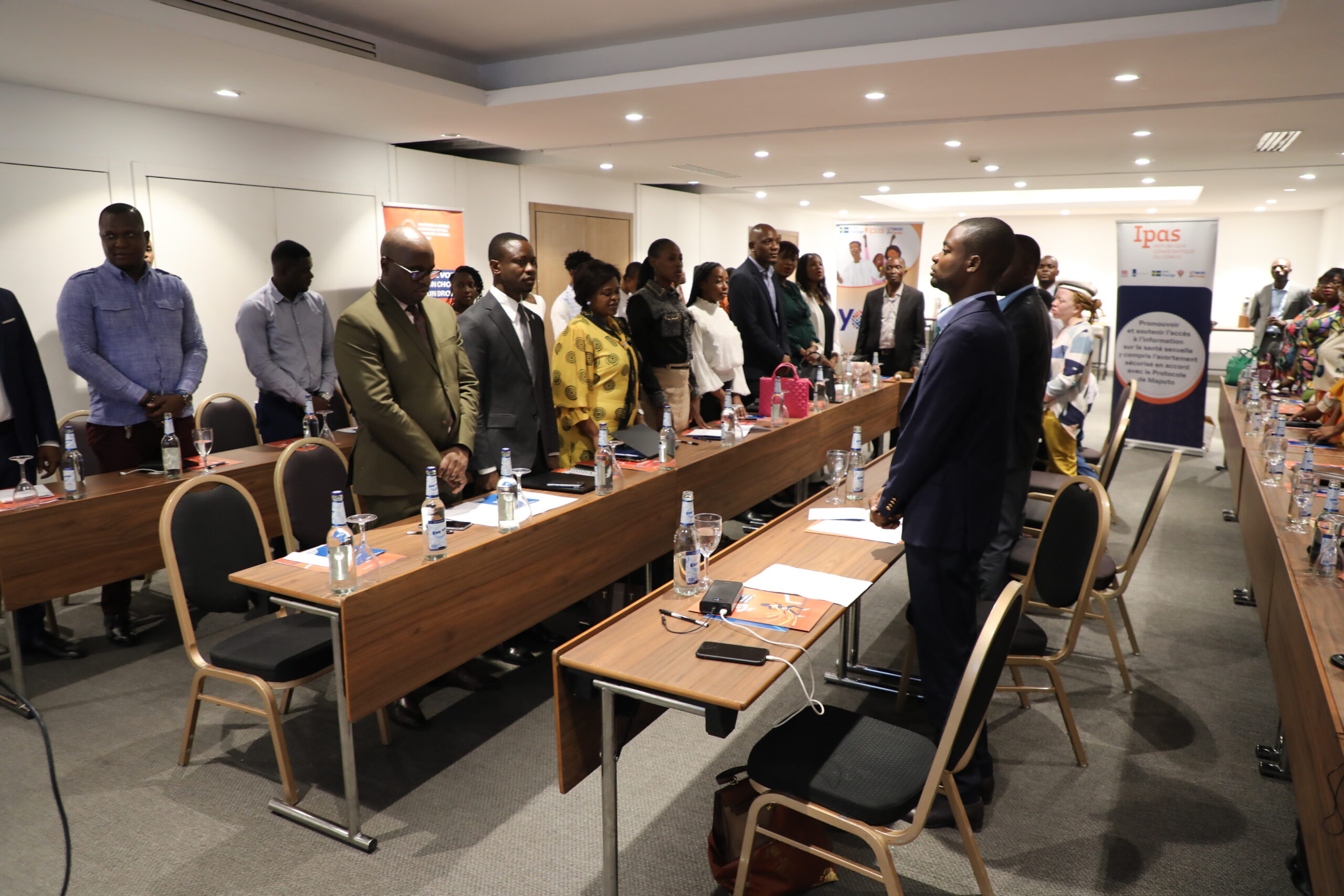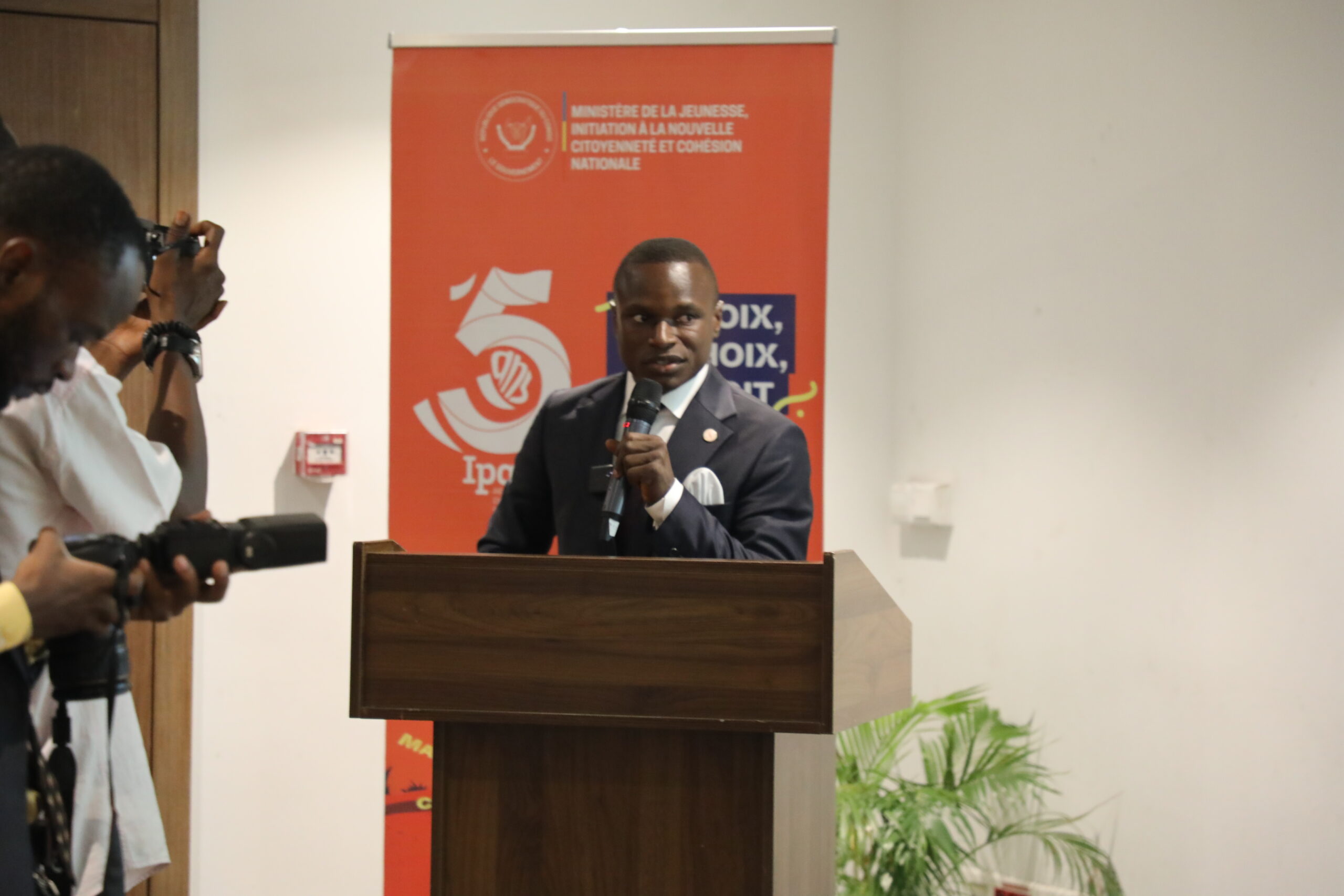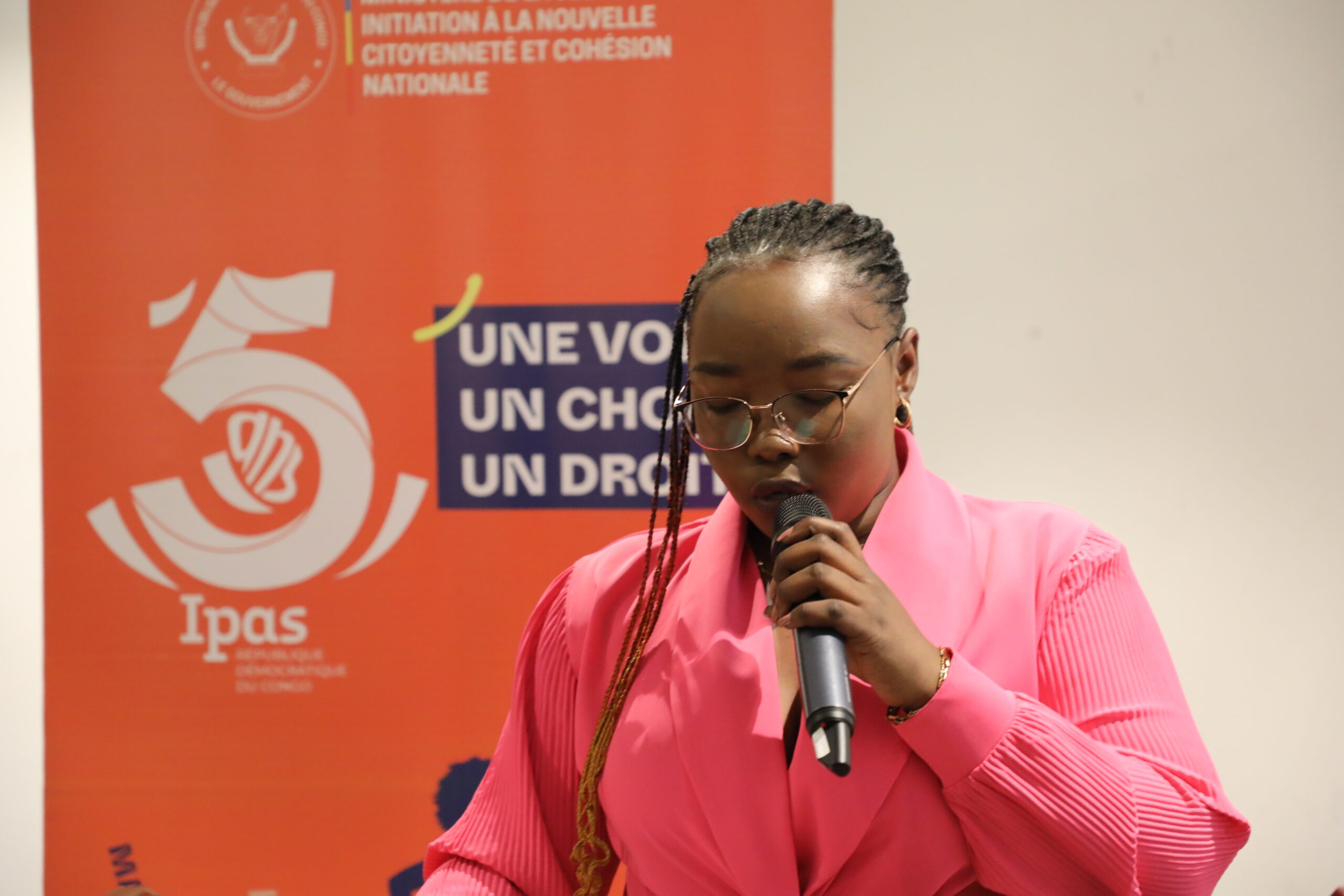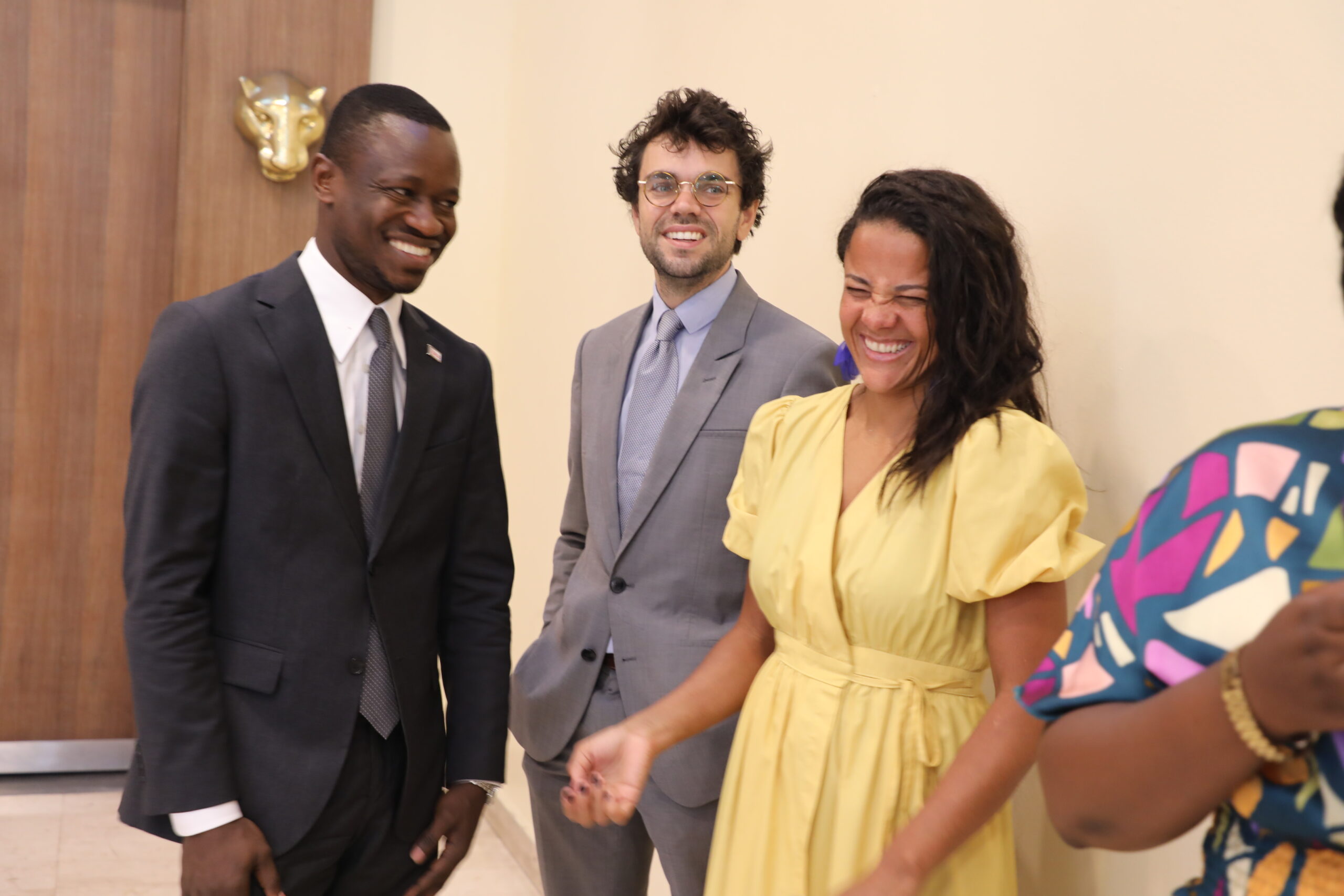The Democratic Republic of Congo government’s commitment to the Maputo Protocol has enabled the country to expand access to information and safe abortion care in the country, thanks to the development of progressive comprehensive abortion care standards and guidelines.
Ipas has supported this process, as well as the training of Magistrates and lawyers and the national campaign of popularization of the Maputo Protocol, guaranteeing access to legal and stigma-free abortion care for women and girls. These substantial milestones aim to improve women’s health, well-being and rights and strengthen their bodily autonomy. However, these progresses remain threatened by growing anti-choice activism in the Great Lakes region of Central Africa and attempts to expand into the DRC. Increasingly, political and religious leaders from the DRC are invited to anti-choice meetings organized to slow down the implementation of the Maputo Protocol in Africa. This unprecedented regional treaty focuses specifically on women’s rights in Africa, including sexual and reproductive rights.

Leveraging the theme of this year’s International Day for the Right to a Safe Abortion, which highlights the role of young people as drivers of change, the YouthSprint Movement, a coalition of 24 youth-led associations, organized a round table discussion involving decision-makers, leaders, health-care managers, partners, donors, and youth leaders. The discussions focused on the progress made by the DRC in implementing the Maputo Protocol, particularly article 14.2.c, the SRH needs for youth, especially in low-income areas and humanitarian settings, and the role of government and all stakeholders, including religious leaders, in ensuring the preservation of the rights guaranteed in the Maputo Protocol as a way to foster women and girls’ bodily autonomy and empowerment. The round table saw the official handover of the call to action to the Minister of Youth, Inclusion, and New Citizenship, including recommendations to the government, parliament and judicial bodies, technical and financial partners and donors.
Organized under the auspices of the Minister of Youth in collaboration with the Ministries of Human Rights and Public Health with the support of Ipas, the round table discussion brought together 35 youth activists, girls (20) and boys (15) from Kinshasa and other provinces with decision-makers, leaders, partners and donors.
Dr. Benjamin Sabue, Program Manager in the YouthSprint Coalition, presented the coalition, its mission and the activities carried out to improve young people’s access to reliable information and sexual and reproductive health services. He outlined the various challenges young people face, including social and cultural norms, stigmatization and discrimination, restricted access to services in health facilities, lack of information, confusion caused by the Congolese legal framework on abortion and lack of financial resources. In response to these challenges, YouthSprint organized awareness-raising activities and online campaigns on social networks to improve young people’s access to information on sexual and reproductive rights within the community, conferences with decision-makers as well as intergenerational dialogues with community leaders.

“Women and girls’ access to sexual and reproductive health information and services is still fraught with obstacles at community, legal and health system levels,” Sabue said. YouthSprint works within the community to bring sexual and reproductive health information and services closer to young people. However, its action alone is not enough, and decision-makers, donors and community leaders have an important role to play.”
The involvement of young people is also essential in the eastern part of the DRC, where armed conflict has been raging for nearly two decades. As a result, people’s health and safety are severely affected, sexual and gender-based violence is used as a weapon of war – with women and girls being deprived of their rights and bodily autonomy.
“Oftentimes, sexual and reproductive health needs are not considered in humanitarian responses. The Mashujaa referral network was thus created to address sexual and reproductive health needs of women and girls in the internally displaced people (IDP) camps, including access to safe abortion in line with the Maputo Protocol” said Madeleine Muvughe, Community Engagement Officer at YARH-DRC, member of YouthSprint Coalition.

In her presentation, Madeleine Muvughe presented the Mashujaa mission, including the availability and accessibility of sexual and reproductive health information, breaking down the barriers created by the humanitarian crisis, and facilitating access to safe abortion care through referral.
Acknowledging the advocacy efforts of YouthSprint, Antoine Ntambu, Director of Cabinet Office of the Minister of Human Rights, reaffirmed the commitment of the Ministry of Human Rights to support YouthSprint in its fight to protect the sexual and reproductive health rights of women and girls. He also recalled the efforts of the Congolese Parliament and the President of the Republic in drafting and promulgating the Law on Reparation for Girls and Women Victims of Rape, as well as the Government’s willingness to set up a fund for the reparation of these women.
Acknowledging the advocacy efforts of YouthSprint, Antoine Ntambu, Director of Cabinet Office of the Minister of Human Rights, reaffirmed the commitment of the Ministry of Human Rights to support YouthSprint in its fight to protect the sexual and reproductive health rights of women and girls. He also recalled the efforts of the Congolese Parliament and the President of the Republic in drafting and promulgating the Law on Reparation for Girls and Women Victims of Rape, as well as the Government’s willingness to set up a fund for the reparation of these women.
“The doors of the Ministry of Human Rights are open to YouthSprint, and we’re ready to work with them to improve access to sexual and reproductive health services and improve the living conditions of girls and women in the DRC,” said Ntambu. “We support you in the vulgarization of the Maputo Protocol so that girls and women can fully enjoy their rights and body.”

As for the donors, Piter Pals, Political Counselor at the Dutch Embassy, spoke of the Netherlands’ commitment to promoting the sexual and reproductive health rights of women and girls in the DRC.
“Faced with a very high rate of maternal mortality due in part to clandestine abortions, the Netherlands renews its commitment to support Ipas DRC to work and improve access to safe abortion and thus reduce maternal mortality,” said Pals.
“Sexual violence constitutes an acute violation of women’s rights, and we are very proud of YouthSprint efforts,” said Tamara Jönsson, Health Advisor and Programme Health Specialist at the Embassy of Sweden to the DRC. “We congratulate Ipas DRC for providing a space for young people to advocate for the sexual and reproductive health of girls and women in the DRC.”
Finally, a UK Embassy Representative said that “the UK is involved in promoting reproductive health in the DRC. We are delighted to see the work being done by Ipas DRC, as a recipient of the Women Integrated Sexual Health (WISH) project.”
In his closing speech, H.E. the Minister of Youth, Inclusion and New Citizenship, Dr Yves Bunkulu, acknowledged the commitment of Ipas DRC as well as its donors. Following the YouthSpint call to action, the Minister committed to advocate for the inclusion of DMI in the Universal Health Coverage package.
“We appreciate the efforts of Ipas DRC, its donors, and YouthSprint in promoting sexual and reproductive health. I can assure you the Government is doing its utmost to ensure that the Maputo Protocol becomes effective by revising the penal code,” stated Dr. Bunkulu. “Dear young people, I will take your demands to the government, and along with other colleagues, we will be advocating for DMI to be included in the universal health coverage package.”
The Round Table Discussion highlighted the need to engage at all levels to better respond to sexual and reproductive health needs, including safe abortion. Discussions sparked frank and open exchanges, the sharing of experiences and recommendations on sexual and reproductive health. Following the discussion, the Minister of Youth promised to advocate on behalf of young people to ensure that their recommendations on sexual and reproductive health are considered in ministerial decrees and interministerial orders. In addition, H.E. Dr Yves Bunkulu reassured the young people that the Ministry would work with the Minister of the Interior, the Police Department to ensure the activists’ safety during field activities.
The Ministry of Health, represented by the National Reproductive Health Program (PNSR), will support young people by sharing documents and evidence-based data that will enable them to better advocate with decision-makers and donors.
Donors reiterated their support for youth organizations in their actions to promote Sexual and Reproductive Rights.


